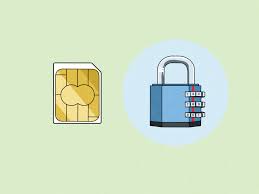IMEI number cloning is a serious issue in todays digital world that not many people are aware of. Understanding what an IMEI number is and how it can be cloned is essential to protecting your privacy and security.
IMEI, which stands for International Mobile Equipment Identity, is a unique 15-digit code assigned to every mobile device. This number is used by network providers to identify valid devices and prevent fraudulent activity.
Cloning an IMEI number involves copying this code from one device to another, essentially creating a duplicate that can cause a multitude of problems. In this article, we will delve into the intricacies of IMEI number cloning and provide you with the necessary knowledge to safeguard yourself from this growing threat.
Risks and Consequences of IMEI Number Cloning

Source: identityiq.com
IMEI number cloning poses significant risks and consequences for both individuals and businesses. One of the most immediate dangers is the potential for financial loss, as cloned devices can be used to make unauthorized purchases or access sensitive financial information.
Additionally, cloned devices can be used for criminal activities such as identity theft, fraud, or even terrorism. From a personal perspective, having your IMEI number cloned can result in your personal information being compromised, leading to privacy violations and potential security breaches.
Businesses may also suffer reputational damage if their devices are cloned and used for illegal activities, leading to loss of trust from customers and partners. Overall, the risks and consequences of IMEI number cloning are vast and multifaceted, making it crucial for individuals and organizations to take proactive measures to protect themselves.
How to Protect Your Device from IMEI Number Cloning

Source: paubox.com
To protect your device from IMEI number cloning, it is essential to take proactive measures to safeguard your personal information and prevent unauthorized access. One effective way to protect your device is by enabling the built-in security features, such as password protection and two-factor authentication.
Additionally, you can regularly check your devices IMEI number for any signs of cloning or manipulation, as this can alert you to any suspicious activity. It is also important to avoid sharing your IMEI number with unfamiliar or untrusted sources, as this can increase the risk of cloning.
By staying vigilant and taking necessary precautions, you can minimize the chances of falling victim to IMEI number cloning and ensure the security of your device.
Legal Ramifications of IMEI Number Cloning

Source: indiatvnews.com
Cloning an IMEI number can have significant legal consequences, as it is considered a form of identity theft. By duplicating an IMEI number and using it to make calls or access services, individuals are essentially impersonating the rightful owner of that device.
This not only violates the privacy and security of the original owner but can also result in criminal charges. In many jurisdictions, IMEI number cloning is illegal and punishable by fines or even imprisonment.
Additionally, using a cloned IMEI number to commit fraudulent activities can lead to civil lawsuits being filed against the perpetrator. It is important for individuals to understand the serious legal ramifications of IMEI number cloning and to avoid engaging in such activities to protect themselves from legal trouble.
Conclusion
In conclusion, understanding the risks associated with IMEI number cloning is crucial for consumers to protect their privacy and security. By familiarizing yourself with the signs of a cloned device and utilizing tools such as IMEI checks, individuals can take proactive steps to safeguard their personal information. It is important to stay informed about the latest threats and security measures in order to stay one step ahead of potential fraudulent activities.
Remember, prevention is key when it comes to thwarting scams and protecting your digital identity.
















